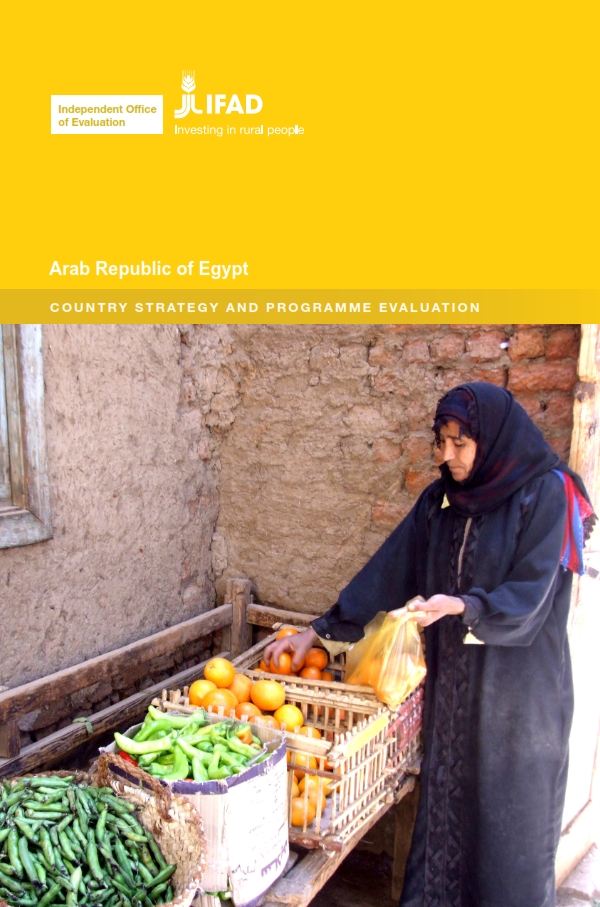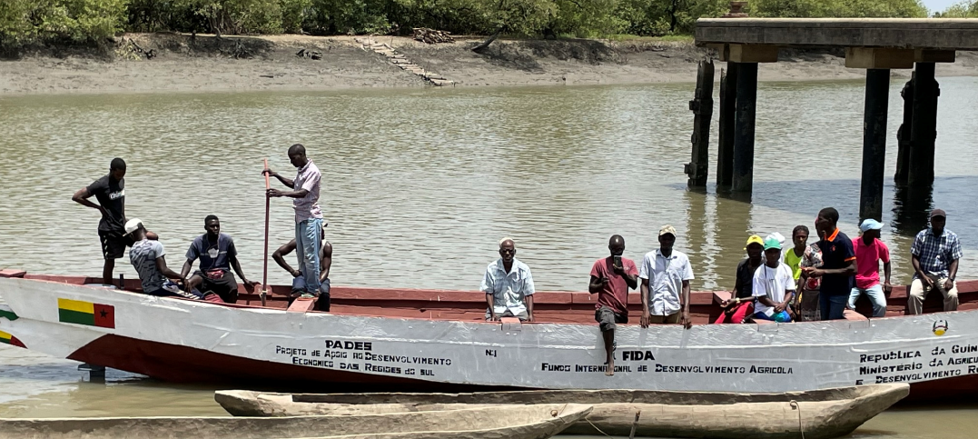Sequencing of interventions essential for credit-supported market development projects - IOE
Rome, 12 September 2023 – Credit-supported market development projects should ensure the right sequencing of capacity development, marketing support and finance components, starting with the first two interventions. This was among the main recommendations that emerged from the recently published Project Performance Evaluation (PPE) of the Evaluation of the Promotion of Rural Incomes through Market Enhancement Project (PRIME) in the Arab Republic of Egypt. The report was produced by the Independent Office of Evaluation of IFAD (IOE).
The recommendation stems from the findings of the PPE, which highlight a disconnect and reversed sequencing between the two main components of PRIME, namely marketing support and rural finance. The two components often worked in different locations and were not well coordinated, causing a lack of synergy and limited access to loans for farmers and enterprises in the marketing support component.
PRIME was implemented between 2012 and 2022. The project was designed to reduce rural poverty and increase food security in the seven governorates of Qena, Sohag, Assiut, Menia and Beni Suef in Upper Egypt, and Beheira and Kafr-el-Sheikh in Lower Egypt. The main objective was to enhance the organizational capacities of smallholder farmers, link them to agricultural value chains of high-value commodities, and facilitate their access to financial services.
The project successfully supported market-oriented horticulture and livestock value chains on the production side. Moreover, the project helped re-orient agriculture institutions towards horticulture and livestock. Among key achievements, in terms of marketing, was the arrangement of 287 sales contracts between farmers and buyers; this generated new market opportunities
The project was also well-aligned with national policies and development strategies. In particular, PRIME was in alignment with the Sustainable Agricultural Development Strategy towards 2030, the Draft Micro, Small and Medium-sized Enterprise and Entrepreneur National Strategy, and the National Strategy for Women's Empowerment.
These efforts notwithstanding, the project did not effectively develop the business and marketing capacities of farmers. It also faced challenges such as weak organizational structure of farmers' marketing associations, poor market knowledge and limited financial literacy training. The marketing initiatives, such as marketing outlets and marketing advisory councils, were not effective in providing benefits to the target farmers. In addition, revolving credit funds were not established as planned.
As a result, market support had limited success in developing well-capacitated, sustainable farmers’ marketing association with clearly defined roles to achieve better marketing opportunities, linkages and prices for their members.
Furthermore, the project did not contribute to innovative or new approaches, and its impact on rural finance institutions and their practices was limited. PRIME also did not have any effects on the capacities of implementing or participating rural finance institutions, or change their internal policies, regulations and loan conditions.
Building on these findings, the PPE report recommends that IFAD should support the expansion of national and subnational governorate technical capacities and strategic partnerships of the Ministry of Agriculture and Land Reclamation of Egypt. In addition, it is advised that IFAD and the Government address and adaptively manage design weaknesses and erroneous project assumptions as early as they arise during implementation, and consistently with project design objectives.
The Arab Republic of Egypt is the most populated country in the Middle East and North Africa region, with a population of 105 million as of February 2022. In 2019, GDP resumed its pre-revolution level and Egypt maintained a 3.6 per cent economic growth rate throughout the COVID-19 pandemic – one of the highest growth rates in the region. Agriculture remains a principal source of livelihood for 57 per cent of the population, employing close to 30 per cent of labour, and 55 per cent in Upper Egypt. IFAD’s current Egypt country strategic opportunities programme (COSOP) emphasizes a stronger focus of IFAD activities in fewer governorates, and more innovative rural finance models.
For further information, please contact Alexander Voccia [here]
RESOURCES
- To access the Project Performance Evaluation (PPE) of the Evaluation of the Promotion of Rural Incomes through Market Enhancement Project (PRIME) in the Arab Republic of Egypt, please click here.
- To read about the visit of the IFAD executive board to Egypt, please click here.
- To access the Arab Republic of Egypt Country Strategy and Programme Evaluation, please click here.
CONTACTS


